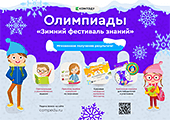| Long-term plan unit: 8 Holiday
| School: Novoishimskaya | |||||||
| Date: | Teacher name: Maslova Oxana
| |||||||
| Theme of the lesson: Holiday activities |
| |||||||
| CLASS: 5 | Number present: | absent: | ||||||
| Learning objectives(s) that this lesson is contributing to | 5.S6 communicate meaning clearly at sentence level during, pair, group and whole class exchanges 5.R1 understand the main points in a limited range of short simple texts on general and curricular topics
Reading about what some children did on holiday and exchanging information.
| |||||||
| Lesson objectives | All learners will be able to: | |||||||
| ||||||||
| Most learners will be able to: | ||||||||
| ||||||||
| Some learners will be able to: | ||||||||
| ||||||||
| Success criteria |
| |||||||
| Value links |
| |||||||
| Cross curricular links |
| |||||||
| ICT skills |
| |||||||
| Previous learning | Present Continuous: I am reading (he is speaking) | |||||||
| Plan | ||||||||
| Planned timings | Planned activities (replace the notes below with your planned activities) | Resources | ||||||
| Beginning
|
ORGANIZATIONAL MOMENT T: Hello, boys and girls! How are you? What day is it today? What is the weather like today? WARMING UP Pupils stay around in the circle and begin to speak «Greeting»: «Доброе утро!», «Good morning», «Кайырлы тан!».The teacher gives pupils the cards with words «Good morning» and «». They divided into two groups. The first group is «Good morning», the second group is « Кайырлы тан !» .The same cards stay on the desks. Children read their Greeting and sit on their seats. |
| ||||||
| Middle
|
SPEAKING and Listening
Every groups speak about British and Kazakh traditions. Kazakh speak about «Shashu». Britain sreak about «Time-tea». After this game teacher nominates student PRACTICE and SPEAKING Making the posters The teacher gives pupils different pictures of British and Kazakh holidays. Pupils should match the picture with the words and speak about their stories protecting Posters. After this game teacher nominates student FORMATIVE ASSESSMENT 1 Activitie- holidays exercises Match the beginning and the end of the holiday phrase. 1 decorate a) costumes 2 celebrate b) carol 3 hang c) a Christmas tree 4 paint d)crackers 5 send e)Christmas 6 pull f)stockings 7 sing g) lamps 8 invite h)friends 9 wear i) parades 10 watch j)Christmas cards 11 light k) pictures
After this game teacher nominates student
READING
2 Activitie: Use the words in the box to complete the sentences Historical, remember, independence, Christmas, celebrate, religious, work, dancing, national, official, during, food, drink
People in the United States (1) ____________ the Thanksgiving Day on the fourth Thursday in November. The fourth of July is also a (2) ____________ holiday. This is the day when Americans celebrate their (3) ____________ from Britain. In Britain people don’t really celebrate (4) ____________ events in this way. Here, the main holidays are (5) ____________ holidays, (6) ____________ and Easter. There are several one-day holidays (7) ____________ the year. These are (8) ____________ public holidays when people don’t go to (9) ____________. There are days when people (10) ____________ the dead or their parents. On many holidays there is usually a lot of (11) ____________ and (12) ____________, and (13) ____________ often until the early hours in the morning. After this activitie teacher nominates student
|
PPT
pictures or flashcards of fruits
PPT
pictures or flashcards of fruits
| ||||||
| End | 3 Activitie: On what holidays do people usually do the following? Match the sentences with pictures 1 Parents put presents in stockings or shoes and put them under the fir-tree. 2 Children make presents to their mothers. 3 Children present flowers to war veterans. 4 Children with flowers are at the entrance of their school. 5 Children present flowers to their teachers. 6 Children sing carols. 7 Children and parents decorate a Christmas tree.
After this activitie teacher nominates student
4 Grammar activitie:
Pupils stay around in the circle and begin to ask each other «What do you do now?». Pupils answer: «I am sleeping now( I am eating…)»
Feedback
5 Activitie «Venn diagram»
Evaluation of the lesson by means of oral feedback from students – images of sunsmiles. Teacher asks guiding questions:
| pictures or flashcards of fruits
| ||||||
| Additional informations | ||||||||
| Differentiation – how do you plan to give more support? How do you plan to challenge the more able learners? | Assessment – how are you planning to check learners’ learning? | ICT links | ||||||
| • More support will be given to weaker learners by giving them a modified worksheets in some tasks with greater support |
|
| ||||||
| Reflection Were the lesson objectives/learning objectives realistic? What did the learners learn today? What was the learning atmosphere like? Did my planned differentiation work well? Did I stick to timings? What changes did I make from my plan and why?
| Use the space below to reflect on your lesson. Answer the most relevant questions from the box on the left about your lesson.
| |||||||
|
| ||||||||
| Summary evaluation What two things went really well (consider both teaching and learning)? 1: 2: What two things would have improved the lesson (consider both teaching and learning)? 1: 2: What have I learned from this lesson about the class or individuals that will inform my next lesson?
| ||||||||





